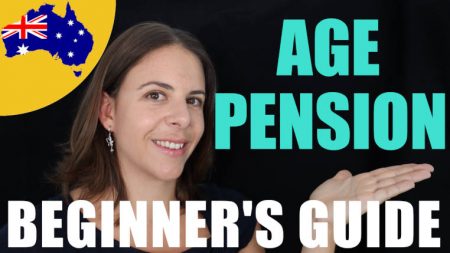
Retirement Villages – 6 Crucial Points to Know
- RetireOn
- Updated: May 20, 2022
Retirement villages are very popular in Australia. Most seniors love the idea of living in a community with like-minded people of the same age group, as well as the social aspects and lifestyle that comes with living in a retirement village.
Are you thinking of buying into one? Before you proceed to do so, there are a few things you should consider before making this life-changing decision.
Read on to discover the 6 crucial points outlined in this post that you should know before buying.
Are You Prepared?
Buying into a retirement village is a big decision, and it needs to be thought about carefully. The contracts are generally very complex, long, and have a significant financial aspect to them.
Before signing anything, you should seek financial and legal advice from a professional with experience in the retirement village industry.
Make sure that you understand what kind of contract you sign. For example, there are three main types with different legal consequences. These are the:
Strata Title
You own the unit after you pay a former resident or the operator an agreed amount. Often, you will need to enter into a service agreement with the operator.
Loan & Licence
These contracts are usually offered by non-profit organisations. You pay a constitution in the form of an interest-free loan.
Leasehold
The lease is usually registered on the title deed, and this protects you in case the village is sold. You pay a lump sum for the leasehold.
As previously mentioned, the contracts can be very complex and have a large amount of fine print highlighting all of your obligations and limitations.
Most people often don’t read these wordy contracts in full and, therefore, don’t understand what they actually signed up or.
Each contract varies between the operators but also between the villages of the same operator. They should be read very carefully! Make sure that you understand your contract in detail – the one for your village.
Another thing to keep in mind is that the standard part of the contracts also vary from state to state as retirement villages are regulated on a state level and not on a federal level.
For example, there are several documents that the operator is required to give to you in a certain timeframe before you sign the contracts.
You can look up the corresponding information provided by your state through these links:
Entry Costs
Buying into a retirement village can be very costly. Usually, you have to hand over your nest egg, meaning you need to sell your family home to buy into a retirement village. This can be very daunting to some people.
The normal procedure is that you have to hand over a lump sum. However, you can ask if you could pay by the week or month, which is sometimes possible.
This would usually allow you to keep the remainder of your money and use it in your favour. For example, by investing it and getting returns yourself instead of the operator of the village.
While you are asking questions about this and conducting your own research, you should also ask how much of it you will get back once you leave, as well as how it is calculated.
Make these calculations for different scenarios – 7 months, 2 years, and 5 years, for example, to gain a better understanding.
You will also want to check if there is a cooling-off period involved and how much you can get back.
This varies from state to state, and depending on the contract, you may only get your entry fee returned once your unit is resold.
Ongoing Costs/Fees
The ongoing costs that you have to pay regularly – on a monthly basis, for example – are also regulated by the contract that you sign.
This covers things such as the provided services, maintenance, and a management fee for the village operator.
The important thing to note here is that they can increase this amount and you may have to pay them even if you move out of your unit.
As previously discussed, everything is written into the contract, which is why reading all of the fine print is very important.
However, there are still several questions that highlight these essential points you should understand before proceeding:
- How much do you have to pay?
- What is covered by those fees and what is additional?
- Can they increase, and by how much? E.g. are they increasing along the CPI?
- How can you dispute them if you don’t agree?
- Once you leave, are you still required to pay for ongoing fees, and for how long will you be liable for these fees?
- Do you have to pay the ongoing fees if you leave the village for an extended period – for example, for travel or hospital purposes?
These are all things to consider, and there may be more questions to ask depending on your personal circumstances.
The answers to these questions, in particular, should be in the contract itself.
Exit Fees
The exit fees are fees that you have to pay once you move out of the village, and this includes in the case of your passing.
Following this, they will have to be paid out of your estate. Sometimes, these fees are called “deferred management fees.”
It is quite common that those fees are calculated as a percentage paid per year of residency. They can be capped, and if so, usually somewhere between 30-38%.
The cap is also typically reached after 10 years. This can mean that after 10 years, 38% of the sales price of your unit can go to the operator.
However, this also depends on your entitlements to the capital gain. In some cases, you also have to pay a refurbishing or infrastructure updating fee at your departure.
Make sure that you understand how your exit fees are calculated. It could be very helpful to calculate them for different situations – for example, 2, 5, and 10 years.
When it comes to selling your unit, you should also check who will be responsible for selling, and if it were you, how you could advertise your unit.
Finally, another important check is if the operator receives a commission once he sells the unit.
Future Care
Before signing up with a retirement village, you should also think about your future care needs.
Generally speaking, most retirement villages offer independent living units. Perhaps the village you are interested in also offers serviced apartments.
Is the operator approved to provide community care? You might want to ask this prior to choosing one.
Check your contract also to see what options you have once you require further care.
Other Potential Considerations
Thus far, we only looked at the more significant money-related items of a contract, but there is more.
Here are several more points you may also want to look at before signing on the dotted line:
- How accessible is your unit? Are there stairs? How wide are the paths? Could you easily use a mobility device inside the unit?
- Is there sufficient visitor parking? Is it available, and where is it?
- Where is the closest doctor, shops, hospitals, libraries, and clubs?
- How close would you be to public transport and how connected is it?
- Are you able to have visitors stay overnight in your unit?
- Are pets allowed?
- What security measures are offered by the village? Do they offer emergency buttons? Are there security gates at the entry? Is there sufficient external lighting?
There is probably much more to consider than you initially thought, right?
What are your thoughts on retirement villages? Are you considering moving into one? Which one are you interested in, and why?
We would love to know your thoughts and feedback in the comments below! Be sure to check back regularly for more great retirement content here on Retireon.com.au and at our YouTube channel.










